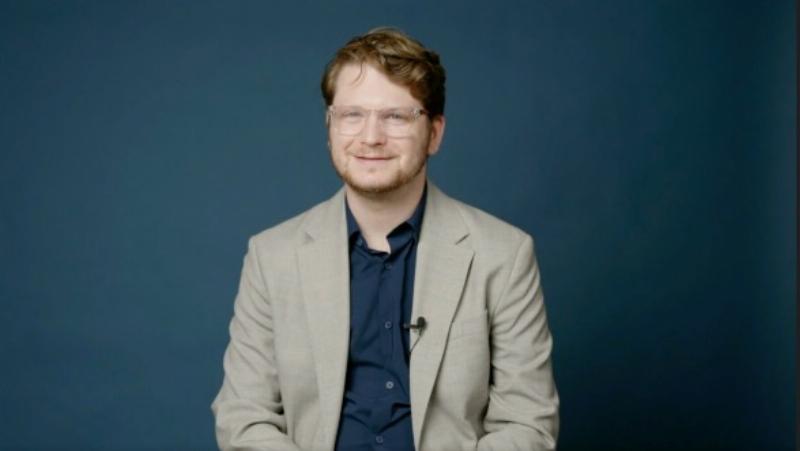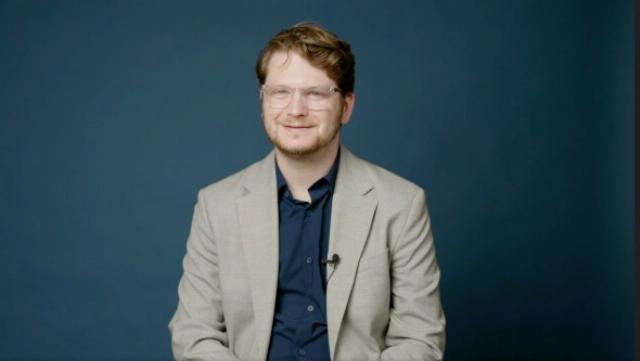


If you have been aware of the antisemitism that is endemic on America’s college campuses, especially the once-prestigious Ivy League campuses, you may recognize Shabbos Kestenbaum’s name. He’s the former Harvard Divinity student (he graduated in May 2024) who led a lawsuit against Harvard because the campus had failed to protect Jewish students’ civil rights following the explosion of antisemitism at Harvard after the October 7, 2023, massacre in Israel. Shabbos has since settled his suit with Harvard (as did the other plaintiffs), but he hasn’t stopped fighting the spread of virulent antisemitism in American academia.
As part of his fight, Shabbos, a one-time Democrat, spoke at the 2024 Republican National Convention:
The fight against antisemitism is one of the most important battles in the West today. We are currently in an existential war between the Judeo-Christian West and the opposing forces of Marxism and Islam. Israel is Ground Zero, which explains why Hamas is fighting it with guns and bombs, and the world’s leftist institutions are fighting it with propaganda. If Israel loses, it’s the first domino to topple in the West’s ultimate destruction.
While the hot war is raging in Gaza and Israel (which, although the media is silent, has been on the receiving end of almost 28,000 missile and rocket attacks since October 7, 2023), there’s been a cold war raging equally hard in academia—the incubator of every mid-level manager and most young politicians in America. What happens in academia never stays there; it infects every part of society. And that is where Shabbos is fighting, and that is why I was so happy to talk with him.
Shabbos said that the most concerning thing today is that America’s youth believe violence is the answer:
Two days before Charlie Kirk was killed, the Foundation for Individual Rights and Expression surveyed Harvard students, and it found that roughly 1/3 of students on Harvard's campus found it acceptable to use violence to stop speech they did not like.
And in the United States, particularly emboldened by our college campuses and institutions of higher learning, we have normalized, we have accepted, and we have celebrated a culture whereby should people, in particular young people, not get their way, then they must, as an act and duty as a civilian, vandalize and burn and shout and break and steal whatever they can.
(Here's the FIRE survey Shabbos mentions.)
Shabbos sees clearly that the victimhood hierarchy on the left creates a permission structure for violence. America’s college-aged students “believe that if you have been wronged by society, if you have been victimized in some way, then you have carte blanche freedom to do whatever it is you would like.” This permission structure applies not only at home, but also abroad, especially to Israel.
When it comes to Israel, we discussed the fact that many of the college students insisting that Israel deserves to be destroyed are abysmally ignorant. They don’t even know what the “river” and “sea” are in the chant about “Palestine” being “free.” At Harvard, Shabbos explained, a group called the Harvard-Palestine Solidarity Committee (“HPSC”) appeared after October 7, arguing to “globalize the intifada.” It turned out that many of its members had no idea what that phrase meant.
Even more disturbing than the ignorance, though, is that once these students understand what they’re advocating, they’re more enthusiastic. After the same students saw evidence of the jihadist the Second Intifada, Shabbos explained that HPSC and other radical groups essentially said, “Okay, fine, now we know what the term Intifada means, and nevertheless, we still believe that it should be globalized.”
Harvard’s curriculum enforces these radical ideas. Shabbos told me, “There were classes that I took at Harvard called the Religion, Nationalism, and Settler Colonialism [and] the Case of Israel-Palestine, Narrative Displacement.” The classes emphasize that, while Israel was once powerless,
[With] the advent of the state of Israel in the 20th and now 21st century, the only way the Jew knows how to exert and exhibit their newfound power is in fact by internalizing the ways of Nazi Germany, which is how you students can appreciate why the IOF, the Israeli occupying forces, are so Gestapo-esque in their tactics.
And no, this has no basis in fact, but it’s what Harvard trains impressionable minds to believe.
In addition to preaching this ideology, professors pressure students to be activists. Says Shabbos,
When you have students who are being told by their professors, that ‘I'm going to cancel class, but so long as you join the encampment and call for an Intifada, I'll give you full credit,’ it's not exactly rocket science as to why students go out and do that thing. It's because professors told them to do it.
Students at Harvard (and presumably, at other campuses) also understand that to be anti-Israel and antisemitic is part of being in with the in-crowd. It’s what you do.
We also discussed the flow of foreign money to Harvard and other universities. Currently, 27% of Harvard’s students are foreigners, the majority from China. China, noted Shabbos, refers to the Harvard Kennedy School of Government as its “party school” because of its infiltration.
In addition to tuition (full freight, in cash), anti-Israel countries flood Harvard with money, with Harvard having admitted to receiving close to a billion dollars over the years from places such as Qatar, the UAE, and Saudi Arabia. Shabbos reminded me of Rachel Fish, who discovered in 2003 that Harvard Divinity School had received $2.5 million from “an antisemitic Qatari-backed UAE think tank.” Harvard was loath to rescind the funds. We have no idea, of course, how much Harvard has secretly received.
Shabbos and I also discussed the role of leftist Jews in driving the anti-Israel narrative. Many of the most flagrant attacks against him have come from the “Speaking as a Jew” leftists who are totally fine with what’s happening at Harvard (see, e.g., this).
Shabbos explained something American Thinker readers already know: There are genetic Jews who take their orders from socialist ideology, and there are religious Jews who are “actively engaged in their Jewish community,” and who see Israel’s survival as a moral, cultural, and practical necessity.
Despite what’s going on at Harvard and other campuses, Shabbos is optimistic. He believes that America is undergoing a “cultural shift,” the most obvious aspect of which “is actually the reelection of Donald Trump.” That “signified that so many Americans were sick and tired of the moral bankruptcy coming from the cultural elites at these institutions of higher learning.” It’s not a coincidence, he said, that
The most watched congressional hearing in American history is the congressional hearing on December 6th, when the three most leading morally bankrupt individuals of our country, Liz McGill of the University of Pennsylvania, Claudine Gay of Harvard, and Sally Kornbluth of MIT, could not answer as to whether the calls for genocide violated their internal policies on speech and harassment.
“The Overton window,” Shabbos told me, “has shifted vis-à-vis institutions of higher learning.” This shift is especially reflected in the fact that parents no longer want their children to go to the Ivies or other hard-left prestige schools.
Instead, “we’re seeing a surge of applications at universities, primarily in the South, but that are not subscribers of wokeism or indoctrination, institutions like the University of Florida, University of Miami, Georgia Tech, Texas A&M.” Indeed, a majority of Americans no longer view a college degree as important, a vast decline in just a few years.
Ultimately, Shabbos explained, colleges are businesses. If they want to keep their customers (i.e., students), they’ll have to change. “They need people to survive. And if they don't get said money or said people, they will be forced to change. And I think that's a really good thing.”
I think that’s a good thing, too, and I’m grateful to have had the chance to talk with a young cultural warrior who is fighting the good fight against institutions that have been central to America’s current troubles.

Image from American Thinker.
